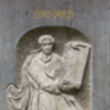King and emperor: a new life of Charlemagne
Description
More Details
9780520973947
Also in this Series
Published Reviews
Choice Review
This biography seeks to reveal traces of Charlemagne's voice and personality as embedded in classical sources. To that end, Nelson (emer., King's College London, UK) translates extracts from Carolingian annals, often composed within or near the lifetime of her subject, while sprinkling contemporary scholarly reflections of more nuanced aspects of Charlemagne's life throughout her narrative. Drawing consistently from Annales regni Francorum and Vita Karoli by the Frankish scholar Einhard, Nelson recounts how Charlemagne manipulated church institutions and secular appointments as tools of governance and for the collection of revenues. Further, by probing Charlemagne's military campaigns and conquests and the division of the conquered territories among loyal Franks, the text details a limited form of what today would be considered ethnic cleansing, a pattern repeated in his conquests of Lombardy, Bavaria, Saxony, and Aquitaine. Nelson also treats Saxon rebellions and Avar military threats, which absorbed much of Charlemagne's attention and military resources. Although Nelson highlights Charlemagne's religious links to the Roman pontiff and Trinitarian Christianity, his primary concerns never strayed far from securing and expanding his borders while carefully engineering a long-term vision of dynastic planning. Summing Up: Recommended. Upper-division undergraduates through faculty; professionals. --David Aaron Meier, Dickinson State University





























